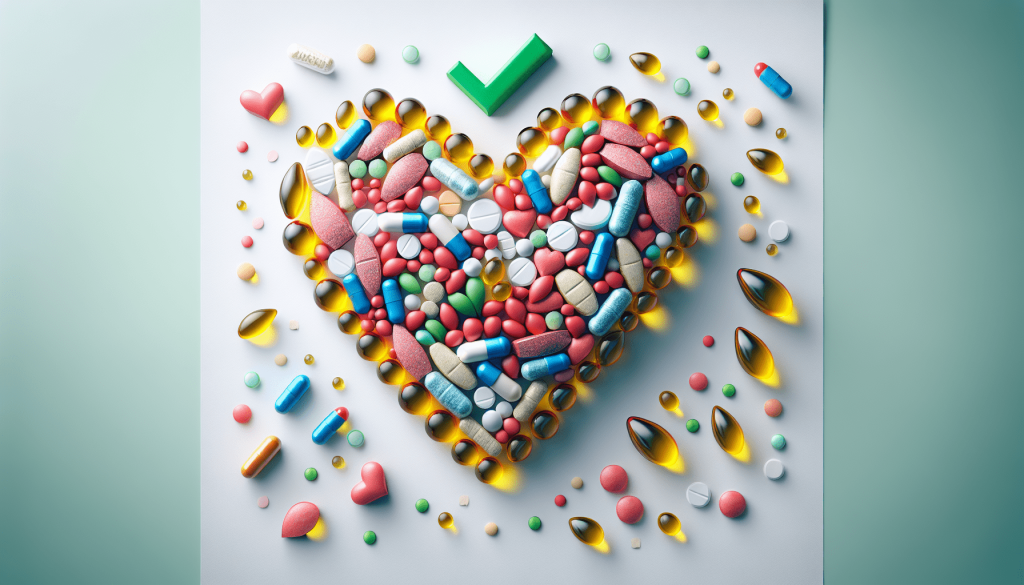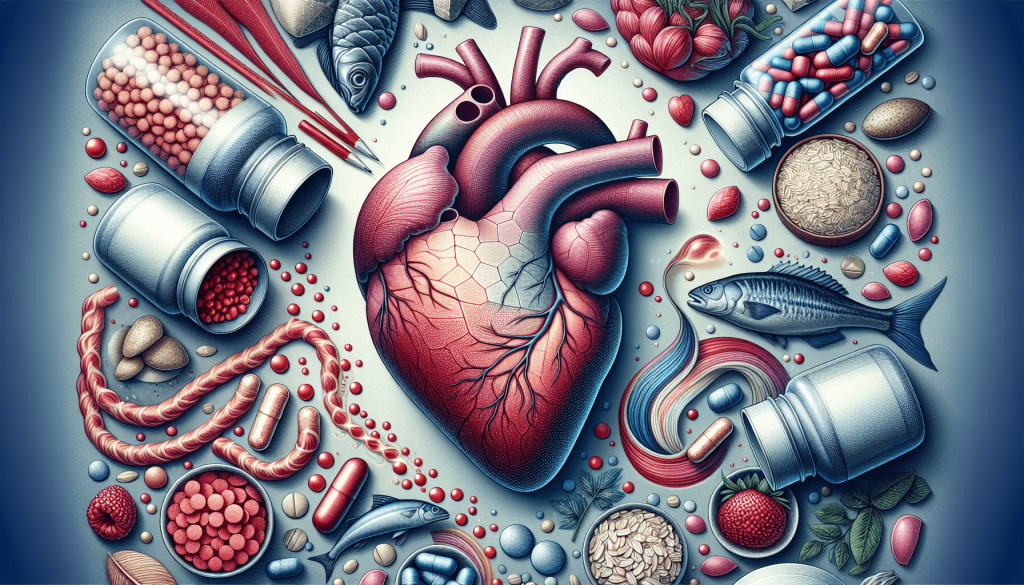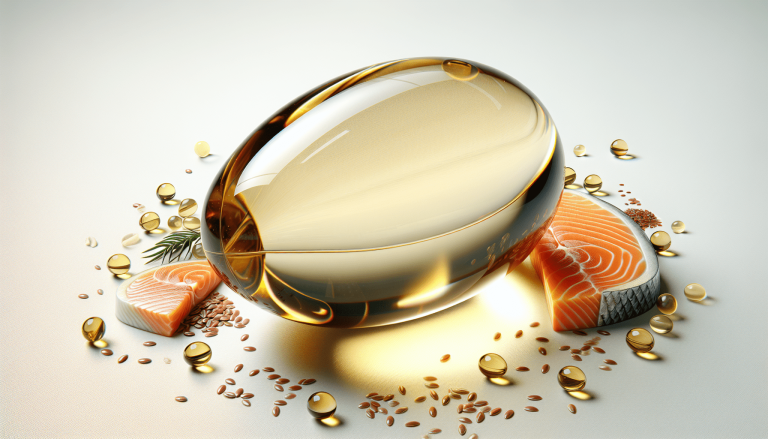What Are The Best Heart Health Supplements?
When it comes to taking care of your heart, finding the best supplements can make all the difference. With so many options available, it can be overwhelming to figure out which ones are truly effective. In this article, we will explore the top heart health supplements that have been proven to support a healthy heart. From omega-3 fatty acids to coenzyme Q10, we will guide you through the maze of choices, helping you make informed decisions about your heart health. So, stay tuned as we unveil the best supplements to keep your heart strong and thriving. When it comes to maintaining a healthy heart, incorporating certain supplements into your daily routine can be beneficial. In this article, we will explore some of the best heart health supplements and delve into their benefits, sources, and recommended dosages. By understanding these aspects, you can make informed decisions about which supplements may be most suitable for you.

Omega-3 Fatty Acids
Benefits of Omega-3 Fatty Acids
Omega-3 fatty acids offer a multitude of benefits for your heart health. These essential fats help reduce inflammation, lower blood pressure, and decrease the risk of heart disease. Numerous studies have shown that regular consumption of omega-3 fatty acids can improve overall heart function and reduce the likelihood of developing cardiovascular problems. Additionally, they have been proven to regulate cholesterol levels, leading to a healthier heart.
Sources of Omega-3 Fatty Acids
There are various sources of omega-3 fatty acids, including fatty fish such as salmon, mackerel, and sardines. These fish are rich in eicosapentaenoic acid (EPA) and docosahexaenoic acid (DHA), which are two primary types of omega-3 fatty acids. If you prefer a vegetarian or vegan option, you can obtain omega-3 fatty acids from sources like flaxseeds, chia seeds, and walnuts.
Recommended Dosage
To reap the benefits of omega-3 fatty acids, it is recommended to consume 250-500 milligrams of EPA and DHA combined per day. This can be achieved through either consuming fish or by taking fish oil supplements. It’s important to consult with your healthcare provider to determine the optimal dosage for your specific needs.
Coenzyme Q10 (CoQ10)
Benefits of Coenzyme Q10
Coenzyme Q10, commonly referred to as CoQ10, is an antioxidant that is naturally produced by the body. It plays a vital role in energy production and serves as a powerful tool in maintaining heart health. CoQ10 has been shown to improve cardiovascular function, reduce oxidative stress, and enhance overall heart performance. It also aids in the maintenance of healthy blood vessels, which is crucial for optimal heart function.
Sources of Coenzyme Q10
While CoQ10 is naturally occurring in the body, its production decreases with age. Therefore, supplementation is often necessary to maintain adequate levels. Including foods such as fatty fish, organ meats, and whole grains in your diet can help boost CoQ10 levels naturally. However, if your levels are low, CoQ10 supplements are available in the form of capsules or soft gels.
Recommended Dosage
The recommended daily dosage of CoQ10 typically ranges between 100-200 milligrams. However, depending on individual needs, dosages may vary. It’s advisable to consult with your healthcare provider to determine the most appropriate dosage for you.
Magnesium
Benefits of Magnesium
Magnesium is an essential mineral that is involved in over 300 biochemical reactions within the body, including supporting heart health. It plays a crucial role in regulating heart rhythm, maintaining normal blood pressure levels, and enhancing overall cardiovascular function. Studies have shown that magnesium supplementation can reduce the risk of coronary heart disease, improve endothelial function, and decrease inflammation in the arteries.
Sources of Magnesium
You can obtain magnesium through a variety of food sources, including green leafy vegetables, nuts, seeds, and whole grains. Additionally, magnesium supplements are available in the form of capsules, tablets, or powders, making it easier to reach the recommended daily intake.
Recommended Dosage
The recommended daily intake of magnesium varies depending on age and gender. For adult males, the suggested dosage is around 400-420 milligrams, while for adult females, it is 310-320 milligrams. However, it is essential to consult with your healthcare provider to determine the appropriate dosage based on your specific needs.
Garlic
Benefits of Garlic
For centuries, garlic has been recognized for its potential cardiovascular benefits. This humble bulb offers a multitude of heart-healthy properties, including the ability to reduce blood pressure, lower LDL cholesterol levels, and decrease platelet aggregation, which can help prevent blood clots. Garlic also possesses anti-inflammatory properties, further supporting heart health.
Sources of Garlic
Garlic is readily available in most grocery stores and can be easily incorporated into a variety of dishes. Whether used in its raw form or as a seasoning, garlic adds flavor and nutritional value to meals. Alternatively, garlic supplements are also available for those who may prefer a more convenient option.
Recommended Dosage
While there is no strict dosage for garlic, studies have shown that consuming 600-1,200 milligrams of garlic extract per day can provide significant benefits for heart health. It is important to note that garlic supplements may interact with certain medications, so it’s essential to consult with your healthcare provider before adding them to your routine.

Vitamin D
Benefits of Vitamin D
Vitamin D is widely recognized for its role in maintaining strong bones, but it also plays a crucial role in heart health. It has been shown to improve cardiovascular function, reduce the risk of heart disease, and help regulate blood pressure levels. Additionally, vitamin D supports the immune system, which indirectly impacts heart health by reducing the risk of infections and inflammation.
Sources of Vitamin D
The primary source of vitamin D is sunlight. The body produces vitamin D when the skin is exposed to sunlight. However, certain food sources, such as fatty fish like salmon and mackerel, fortified dairy products, and egg yolks, also contain vitamin D. Supplements are available for those who have limited sun exposure or struggle to obtain sufficient amounts through their diet.
Recommended Dosage
The recommended daily intake of vitamin D varies depending on age and individual circumstances. For most adults, a dosage of 600-800 international units (IU) per day is typically recommended. However, it’s important to consult with your healthcare provider to determine the appropriate dosage for you.
Green Tea Extract
Benefits of Green Tea Extract
Green tea extract, derived from the leaves of the Camellia sinensis plant, is renowned for its antioxidant properties and potential cardiovascular benefits. It contains catechins, which are powerful compounds that help reduce inflammation, improve blood flow, and lower LDL cholesterol levels. Regular consumption of green tea extract has been associated with a reduced risk of heart disease and improved overall heart health.
Sources of Green Tea Extract
Green tea extract is available in the form of capsules, tablets, or powdered supplements, making it convenient for daily consumption. Additionally, brewing and enjoying a cup of green tea can also provide the desired health benefits.
Recommended Dosage
The recommended dosage of green tea extract varies depending on the concentration and form of the supplement. It is advisable to follow the instructions provided on the product packaging or consult with your healthcare provider for personalized guidance.

Berberine
Benefits of Berberine
Berberine is a compound found in various plants, including barberry and goldenseal. It has been used in traditional medicine for centuries due to its potential health benefits. Berberine has been shown to reduce blood sugar levels, improve insulin sensitivity, and lower cholesterol levels. These effects can contribute to heart health by reducing the risk of diabetes and heart disease.
Sources of Berberine
Berberine is typically available as a dietary supplement. It can be found in the form of capsules or tablets in most health stores or online retailers. It is essential to choose a reputable brand and consult with your healthcare provider for optimal dosage and usage.
Recommended Dosage
The recommended dosage of berberine varies depending on specific goals and individual needs. However, most studies have utilized dosages between 900-1,500 milligrams per day, divided into multiple doses. As with any supplement, it’s crucial to consult with your healthcare provider before starting berberine supplementation.
Hawthorn
Benefits of Hawthorn
Hawthorn is an herbal extract derived from the leaves, flowers, or berries of the hawthorn plant. It has long been used in traditional medicine for its potential cardiovascular benefits. Hawthorn has been shown to improve blood flow, reduce blood pressure, and enhance overall heart function. It also possesses antioxidant properties that help protect the heart from oxidative stress.
Sources of Hawthorn
Hawthorn supplements are available in various forms, including capsules, tablets, tinctures, and teas. These can be found in health food stores or purchased online. It is essential to choose a product from a reputable brand and consult with your healthcare provider for optimal dosage and usage.
Recommended Dosage
The recommended dosage of hawthorn varies depending on the specific condition being addressed. However, most studies suggest a daily dosage of 300-1,500 milligrams in divided doses. It’s important to consult with your healthcare provider to determine the most suitable dosage for your individual needs.

Resveratrol
Benefits of Resveratrol
Resveratrol is a compound found in the skin of red grapes, as well as in berries and peanuts. It is renowned for its antioxidant and anti-inflammatory properties, which can positively impact heart health. Resveratrol has been shown to reduce inflammation, lower blood pressure, and improve overall cardiovascular function. Additionally, it may help reduce LDL cholesterol levels and prevent the formation of blood clots.
Sources of Resveratrol
Resveratrol can be obtained through the consumption of foods rich in this compound, such as red grapes, blueberries, and dark chocolate. However, resveratrol supplements are also available in the form of capsules or tablets for those who may not obtain sufficient amounts through their diet.
Recommended Dosage
The recommended dosage of resveratrol as a supplement varies depending on the specific product and concentration. It is important to follow the instructions provided on the product packaging or consult with your healthcare provider for personalized guidance.
L-arginine
Benefits of L-arginine
L-arginine is an amino acid that plays a crucial role in various bodily functions, including heart health. It serves as a precursor for nitric oxide, a molecule that helps relax and dilate blood vessels, thereby improving blood flow. L-arginine has been shown to lower blood pressure, reduce the risk of atherosclerosis, and enhance exercise tolerance in individuals with cardiovascular conditions.
Sources of L-arginine
L-arginine is naturally present in certain foods, including red meat, poultry, fish, and dairy products. However, supplementation may be necessary in some cases, especially for individuals with specific medical conditions or dietary restrictions. L-arginine supplements are available in the form of capsules or powders.
Recommended Dosage
The recommended dosage of L-arginine varies depending on individual needs and specific health conditions. It is advisable to consult with your healthcare provider to determine the optimal dosage for you.
In conclusion, incorporating certain supplements into your daily routine can provide numerous benefits for heart health. Omega-3 fatty acids, Coenzyme Q10, magnesium, garlic, vitamin D, green tea extract, berberine, hawthorn, resveratrol, and L-arginine are all excellent choices to consider. Remember to consult with your healthcare provider before starting any new supplements to ensure they align with your specific health needs. By incorporating these heart health supplements into a well-rounded lifestyle that includes regular exercise and a balanced diet, you can take proactive steps towards maintaining a healthy heart.







